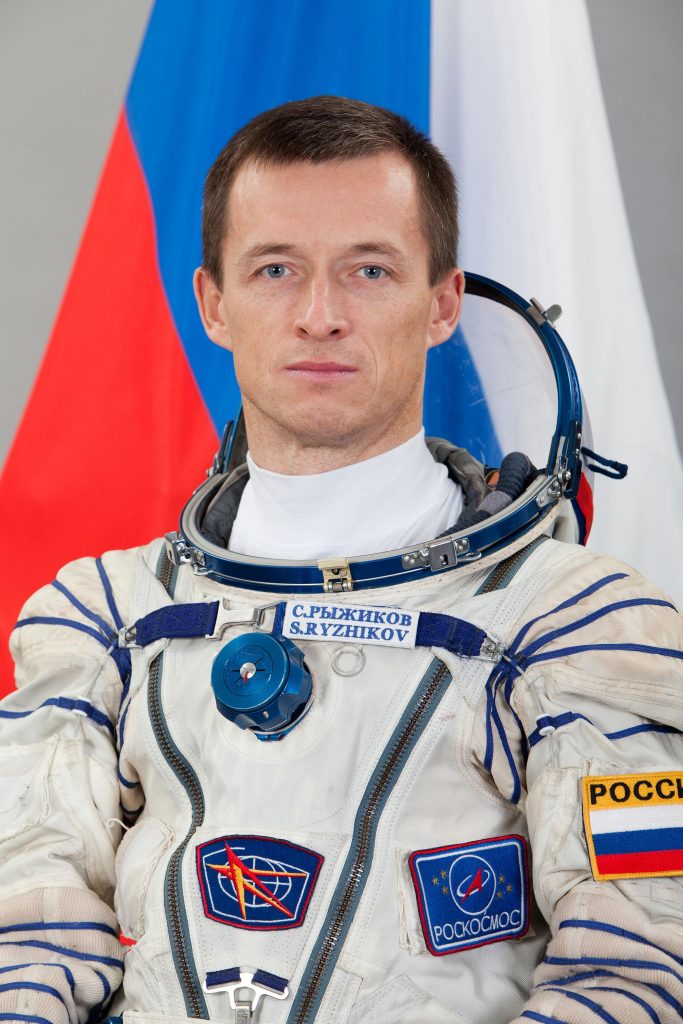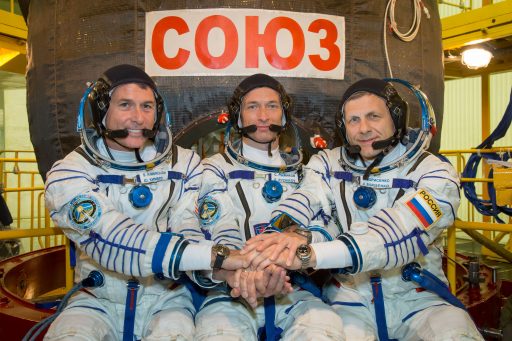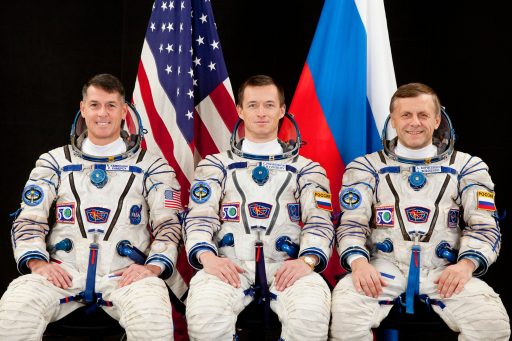Sergei Ryzhikov

Sergei Ryzhikov, born August 19, 1974 in Bugulma, is a Russian military pilot and Test Cosmonaut making his first space flight in 2016/17 as part of International Space Station Expedition 49 and 50.
Ryzhikov graduated from Orenburg Higher Military Aviation Red Banner Pilot School in 1992 and then attended the Kachinsk Higher Military Aviation Pilot School from which he graduated in 1996. He served in the 37th Air Army and Air Force troop unit, Special Command before, in 1997, becoming the Chief of Staff – Deputy Commander of the squadron, flight commander of the 14th Air Army. As military pilot 2nd class, he mastered the L-39 and MiG-29 aircraft, also completing over 100 parachute jumps.
Sergei Ryzhikov applied for the Cosmonaut program in 2006 and completed the necessary medical checkouts before being selected as Cosmonaut Candidate in October. He reported to the Gagarin Cosmonaut Training Center in 2007 for two years of general training and evaluations.
He completed basic training in June 2009 and was officially qualified as a Test Cosmonaut under the CTC detachment in August. Later in 2009, he worked at the Baikonur Cosmodrome as part of crew training on the Mini Research Module before its launch to the Space Station.
Ryzhikov, together with fellow Cosmonauts Oleg Novitski and Elena Serova, participated in desert survival training in July 2010 followed by a week of training in August focused on visual / instrument Earth observation from an aircraft.


Ryzhikov received his first flight assignment in late 2014, being selected for the crew of Soyuz MS-02 and ISS Expedition 49/50, automatically making him part of the 47/48 backup crew. He will fly on Soyuz and ISS with Cosmonaut Andrei Borisenko and NASA Astronaut Shane Kimbrough.
The trio entered training operations in January 2015 to prepare for flight specific tasks and receive in-depth systems training for both Soyuz and ISS. They completed two days of survival training in a forest near Moscow to prepare for the event of a winter landing in a remote area. Training for a water landing was conducted at the Noginsk Rescue Center in July 2015 over the course of three days, allowing the crew to be familiarized with heat-protective and diving suits, and other survival gear on board the Soyuz.
As part of the Soyuz TMA-20M backup crew, he and his crew mates went through ISS and Soyuz TMA-M exams in February and March, being approved by the Russian State Commission as backup commander for that mission. Not needed as a backup, Ryzhikov continued flight-specific preparations over the course of the last half year to train for his role as Soyuz MS-02 commander and International Space Station Flight Engineer.
Although Ryzhikov is the least experienced crew member aboard the Soyuz, Russian missions prefer military status over crew experience when selecting commanders. Both, Borisenko and Kimbrough can look back at a previous mission to space.
Lifting off in October 2016, the crew of Soyuz MS-02 will look forward to a five-month stay on the Space Station as part of Expedition 49/50.
